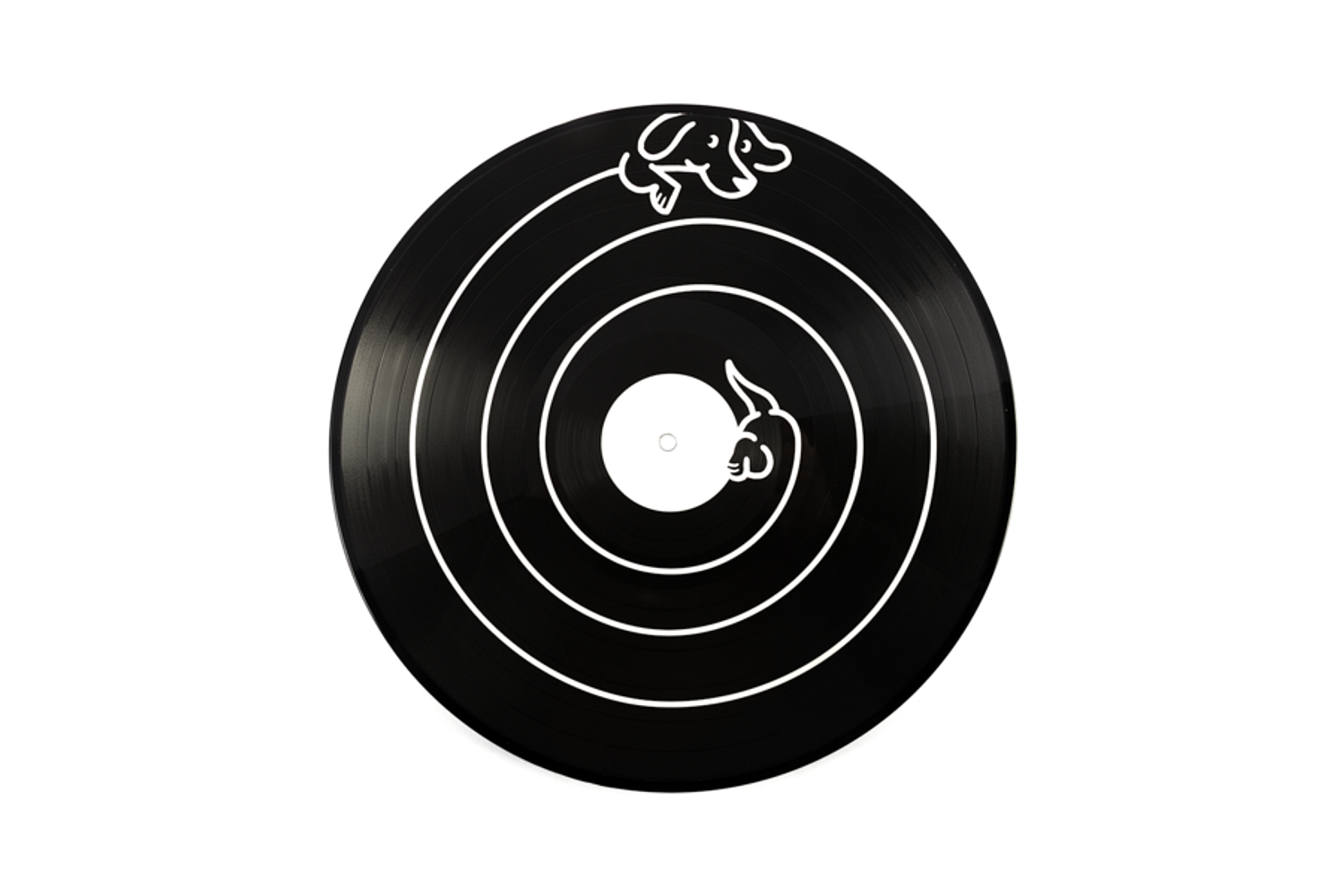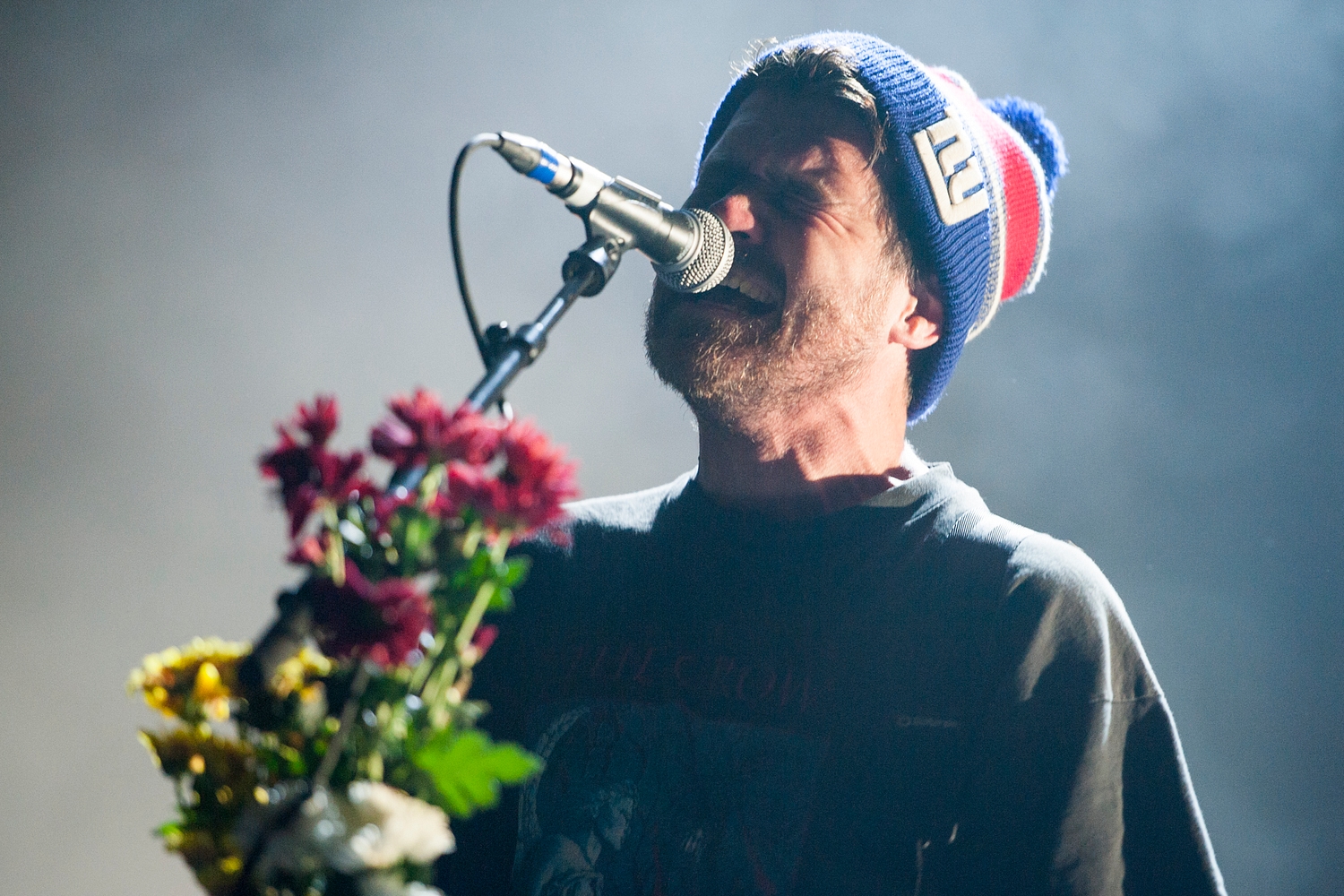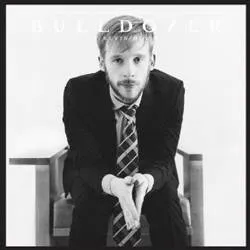Live Review
Kevin Devine, Camden Barfly
The most engaging, responsive live performer the Barfly has ever housed.
The significantly condensed parameters of the Camden Barfly’s stage area, on this occasion ushered upstairs, will limit tonight’s audience to an accordingly paltry number: in effect, a select group of people. Not endearing of the situation is today’s delightfully humid climate, only augmented by the enclave we now adorn. None of this, however, is of any consequence by the night’s conclusion. The timid size of crowd bears no injury or testament to the calibre of the ensuing performance. It becomes apparent that Brooklyn’s Kevin Devine is not an artist to be lauded and jeered at incessantly; rather, he is to be listened to with diligence as a man with a cogent, tangible perception to convey. In a scene where many bands appear compelled to evoke nothing more than their collective relationship status, the vivid political inseam of much of Devine’s music is ample relief. Everyone here takes further respite in the fact that none of his untenable exigency is lost in person.
The abrupt palpability of the headliner, though, is first preceded by the understated escapist notions of tonight’s support acts. Toy Horses, for instance, maintain a playful, porcelain sheen throughout their short set. It’s an expected sound, if Toy Horses were to animate themselves with a seething penchant for song. At several points, nauseous piano stumbles astride hesitant acoustic guitar, while the sporadic employ of obscure, miniature instruments augments an innocent, veracious swagger. Despite the unabated oddity, however, the pair never indulge in aimless foible. The electric ukulele is prominent, though played with a dexterity far beyond its size and fleeting novelty. Sound samples, in such a small venue, heavy-handedly calibrate the tone and demeanour of many tracks. Above all, the superimposition of two vocal sensibilities, boisterous in songs like ‘Last Chance’, indicates a veracious inclination towards the melodic, punctuated by the constant direction of a vascular bass drum. Their jovial presence on stage, by the end, remains as the hallmark of a band unscathed by conventional banes of redundant nonchalance or self-importance and, as such, is unmistakeably noteworthy.
The frivolity is lost on The Capitol Years. Exhibiting a certain dormant grunge ambience, the band exude an indefatigably jagged sound, with assertive percussion often the focal point of many songs. Talk is clearly cheap, with murky, mounting conclusions, with an emphasis on shimmering cymbals, lunging seamlessly into other tracks, while intermissions of acerbic banter are made sparingly. All of it denotes a band that operates on no conceited pretence, whilst maintaining an almost surgical professionalism, despite their shambolic resonance. Everything we hear is blunted by a startlingly viscose vocal curve and somewhat pastoral guitar, providing orientation to an otherwise bothersome character. In the latter stages of their slot, however, the seamless, to an extent, embraces the superfluous, where shorter songs are nondescript or repetitions of those before them, a residual thought that no degree of confidence can quell.
Something we immediately discern about Kevin Devine, eventually taking the stage in refreshingly punctual fashion, is the gaping absence of The Goddamn Band. The entirety of the ramshackle backing five-piece, save Mark Strandberg on electric guitar, are missing tonight, leaving Devine without coarse, assertive projection to his efforts. Still, their truancy is seldom detrimental; through a lack of churlish percussion and bass, in such a small venue, the remaining performers, heralding third studio album ‘Brother’s Blood’, never berate themselves in audible convolutions. The crowd, furthermore, in this way are compelled to listen rather than passively acknowledge the events on stage. The notion is exemplified in a sedated rendition of ‘I Could Be With Anyone’, where the story of a nomadic romantic berth is all the more poignant in a chiefly acoustic persuasion. The clarity achieved, moreover, is not found at the expense of instrumental proficiency. The altruistic accompaniment of electric guitar forms a lucid delineation of the temperament of several songs, while Devine’s own distinct brand of fervent folk is vindicated with a honed ear for nonpareil hooks and flitting riffs. Aside a nimble vocal tenor, the dynamic attaches placid, reclined connotations to the eternal tumult of modern life, distant from the violent submission of the record, so as to render it immaterial. The conception shines through tracks such as the surly ‘Just Stay’ and the rustic ‘Alabama Acres’ as well as assuming a stagnant presence throughout.
Something else we eventually discern about Kevin Devine, around the middle of the set, is his rather unabated fondness for conversation. At several instances, the songwriter strikes us as the most engaging, responsive live performer the Barfly has ever housed. He constantly attempts to instigate some chat, be it over his experience of Glastonbury, the newspaper-induced killer heat wave, our feelings tonight or Mark Strandberg’s iteration of the audience’s questions, in the voice of Christopher Walken. The result is a vivified, personal reciprocity that enables a zealous, attentive crowd, despite its size, as well as collateral resolve for Devine himself. An energy that facilitates the fierce, categorical denomination of the World’s broken, brittle smile in the furtive ‘Another Bag of Bones’, and animates the primitive nihilism of the titular ‘Brother’s Blood’, in which guitars cower away from archaic aggression. Devine, in the end, leaves without an encore. The shared perception, though, is that of salient, memorable satisfaction and redemption.
Read More

Big Scary Monsters celebrate 250th release with special 12” picture disc
'Let's Just Do It And Be Legends' is pay-what-you-want and features American Football, Martha, Kevin Devine and more.
20th February 2019, 12:00am

Devine intervention: Kevin Devine
Ahead of his UK tour kicking off at the weekend, the Brooklynite talks new album 'Instigator' and finding liberation.
26th January 2017, 12:00am

Brand New’s Jesse Lacey is releasing new material with Kevin Devine
The elusive frontman has been added to Devine’s vinyl splits series.
14th December 2015, 12:00am
Kevin Devine: ‘It Was A Genuine Pure Flash Of Wow’
With some sacrifices, Kevin Devine became a self-starter in the past 12 months. The response has been overwhelming.
4th February 2014, 12:59pm
With Bob Vylan, St Vincent, girl in red, Lizzy McAlpine and more.

